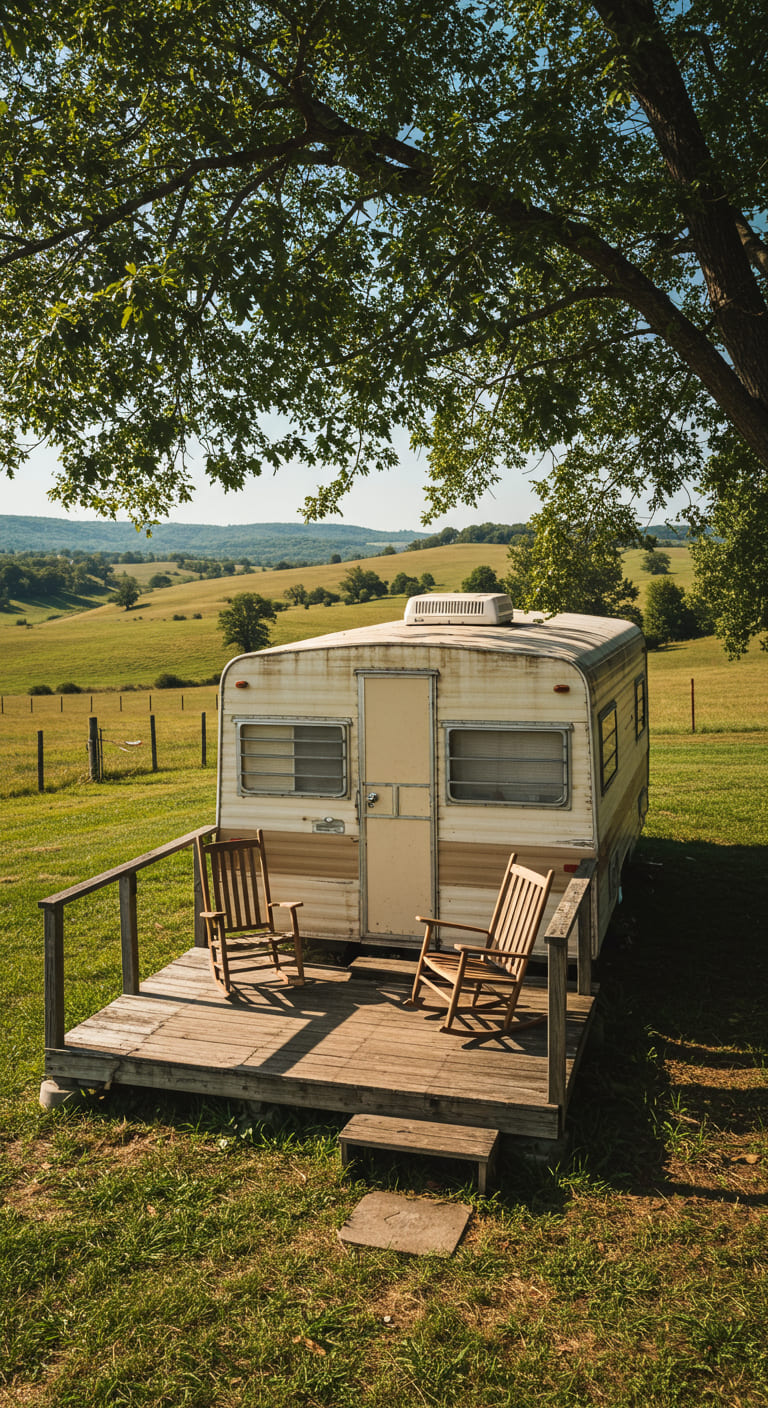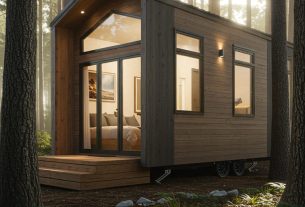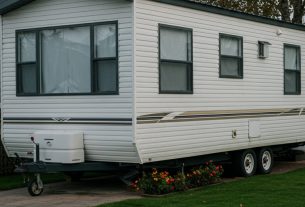Have you ever gazed at a mobile home and wondered what it’s really made of? As someone who has spent countless hours researching trailer homes, I can assure you that there’s much more beneath the surface than meets the eye. In this article, I’ll take you on a journey through the various components of a trailer home, exploring materials, construction methods, and the unique advantages that make them a popular choice for many. Let’s dive in!
Understanding the Basics of Trailer Homes
Before we delve into the specifics of what makes up a trailer home, it’s essential to understand what exactly a trailer home is. Known by various names like mobile homes, modular homes, or manufactured homes, trailer homes are prefabricated structures built in a factory and then transported to their site. They come in many shapes and sizes, designed to be both functional and cost-effective.
The Structure: Frame and Foundation
The frame and foundation are the backbone of any trailer home. Unlike traditional homes, trailer homes are built on a metal chassis, which provides strength and stability.
- Metal Frame: Most trailer homes utilize a steel frame as the foundation. This is crucial for structural integrity and allows the home to be transported. The steel frame is often constructed using I-beams and cross members to provide support.
- Wooden or Steel Floor Joists: The flooring of a trailer home is typically supported by steel or wooden joists, which help to distribute weight evenly and ensure durability.
- Anchoring Systems: To prevent movement during transportation and to withstand environmental stresses, trailer homes are anchored to the ground using specific tie-downs and straps.
The Walls: Materials and Insulation
The walls of a trailer home are where the real innovation comes in. Let’s look at the various materials used:
- Exterior Walls: Most trailer homes feature a combination of aluminum siding, vinyl, or wood. Aluminum is lightweight and resistant to rust, while vinyl is low-maintenance and offers a variety of colors.
- Insulation: Proper insulation is vital for energy efficiency and comfort. Common insulation materials include fiberglass batts and foam boards, which help maintain a stable indoor temperature.
- Interior Walls: The interior walls are often made of drywall or paneling. This provides a smooth finish and allows for easy customization.
The Roof: Types and Materials
When it comes to roofing, trailer homes can feature various styles. The choice of roofing material can significantly impact durability and maintenance:
- Flat Roofs: Many older mobile homes feature flat roofs, which are easier to construct but may require more maintenance to prevent leaks.
- Pitched Roofs: Modern trailer homes often come with pitched roofs made of metal or asphalt shingles, providing better drainage and longevity.
- Insulation and Ventilation: Just like walls, roofs require proper insulation. Ventilation systems are also crucial to prevent moisture buildup and ensure air quality.
The Interior: Design and Functionality
Now that we have covered the structural aspects, let’s explore the interior of a trailer home. This is where personal style and functionality come into play:
- Flooring: Trailer homes often feature laminate, vinyl, or carpet flooring. Each choice has its advantages, from easy maintenance to comfort underfoot.
- Kitchen and Bathroom Fixtures: Mobile homes are typically outfitted with standard appliances, cabinets, and fixtures that can be customized to fit the homeowner’s taste.
- Living Spaces: Many trailer homes boast open floor plans, creating a sense of space despite their smaller square footage.
Energy Efficiency and Sustainability
As the world shifts towards sustainability, many trailer home builders are focusing on energy efficiency. This not only reduces environmental impact but also saves homeowners money:
- Energy-Efficient Appliances: Many modern trailer homes come equipped with energy-efficient appliances that reduce electricity consumption.
- Solar Panel Options: Some homeowners opt for solar panels, which can provide a renewable energy source and decrease reliance on grid power.
- Recycled Materials: Innovative builders are increasingly using recycled materials in construction, making the homes more sustainable.
Advantages of Trailer Homes
Why are trailer homes gaining popularity? Here are some compelling reasons:
- Affordability: Trailer homes are significantly more affordable than traditional homes, making homeownership accessible to many.
- Mobility: As the name suggests, trailer homes can be moved. This flexibility is ideal for those who enjoy traveling or relocating.
- Community Living: Many trailer home parks offer a sense of community, where neighbors become friends and create a supportive environment.
Challenges and Considerations
Despite their many advantages, trailer homes also present unique challenges:
- Depreciation: Unlike traditional homes that typically appreciate in value, trailer homes often depreciate over time.
- Financing Options: Securing financing for a trailer home can be more challenging compared to traditional real estate.
- Space Limitations: The smaller footprint can be a downside for families or individuals needing more space.
Case Studies: Success Stories of Trailer Home Living
To further illustrate the potential of trailer homes, let me share some inspiring case studies:
1. The Tiny Home Movement
Many have embraced the tiny home movement, finding joy in minimalism. One such example is a couple who downsized from a traditional home to a trailer home. They discovered that, with careful planning and design, they could create a cozy, stylish living space that met their needs without the burdens of a larger mortgage.
2. Sustainable Living in a Mobile Home Park
In a mobile home park in California, residents have come together to create a sustainable community. They’ve implemented shared gardens, solar energy systems, and community events that foster a sense of belonging while promoting eco-friendly living.
Frequently Asked Questions
What is the average lifespan of a trailer home?
With proper maintenance, a trailer home can last anywhere from 30 to 50 years or more. Factors such as quality of construction, location, and upkeep play significant roles in determining lifespan.
Are trailer homes safe during extreme weather?
While trailer homes are designed to withstand various weather conditions, they may be more vulnerable to extreme weather events compared to traditional homes. It’s essential to anchor them securely and consider additional reinforcements in high-risk areas.
Can I customize my trailer home?
Yes! Most trailer homes offer a range of customization options, from floor plans to finishes. Working with a builder that specializes in mobile homes can help you create a space that reflects your style.
Conclusion: Join the Conversation!
In summary, trailer homes are complex structures made from various materials, each contributing to their unique advantages and challenges. They offer an affordable, flexible housing option for many, though they come with considerations that potential homeowners should be aware of. As we’ve seen through various examples and case studies, living in a trailer home can be a rewarding experience, especially when approached with creativity and planning.
I invite you to join the conversation! Share your thoughts, experiences, or questions about trailer homes in the comments below. If you found this article informative, please consider signing up for our newsletter to receive more insights and share it with friends on social media. Together, we can explore the fascinating world of trailer homes!
Partsam 12V Submersible Square Led Trailer Light,Red White LED Stop Turn Tail License Brake Running Light Lamp for Trailers Under 80" Boat Trailer Truck Marine Camper RV Snowmobile,IP68,DOT Compliant
$16.99 (as of November 15, 2025 07:52 GMT -03:00 - More infoProduct prices and availability are accurate as of the date/time indicated and are subject to change. Any price and availability information displayed on [relevant Amazon Site(s), as applicable] at the time of purchase will apply to the purchase of this product.)
Sign up for our newsletter and stay up to date with exclusive news
that can transform your routine!





